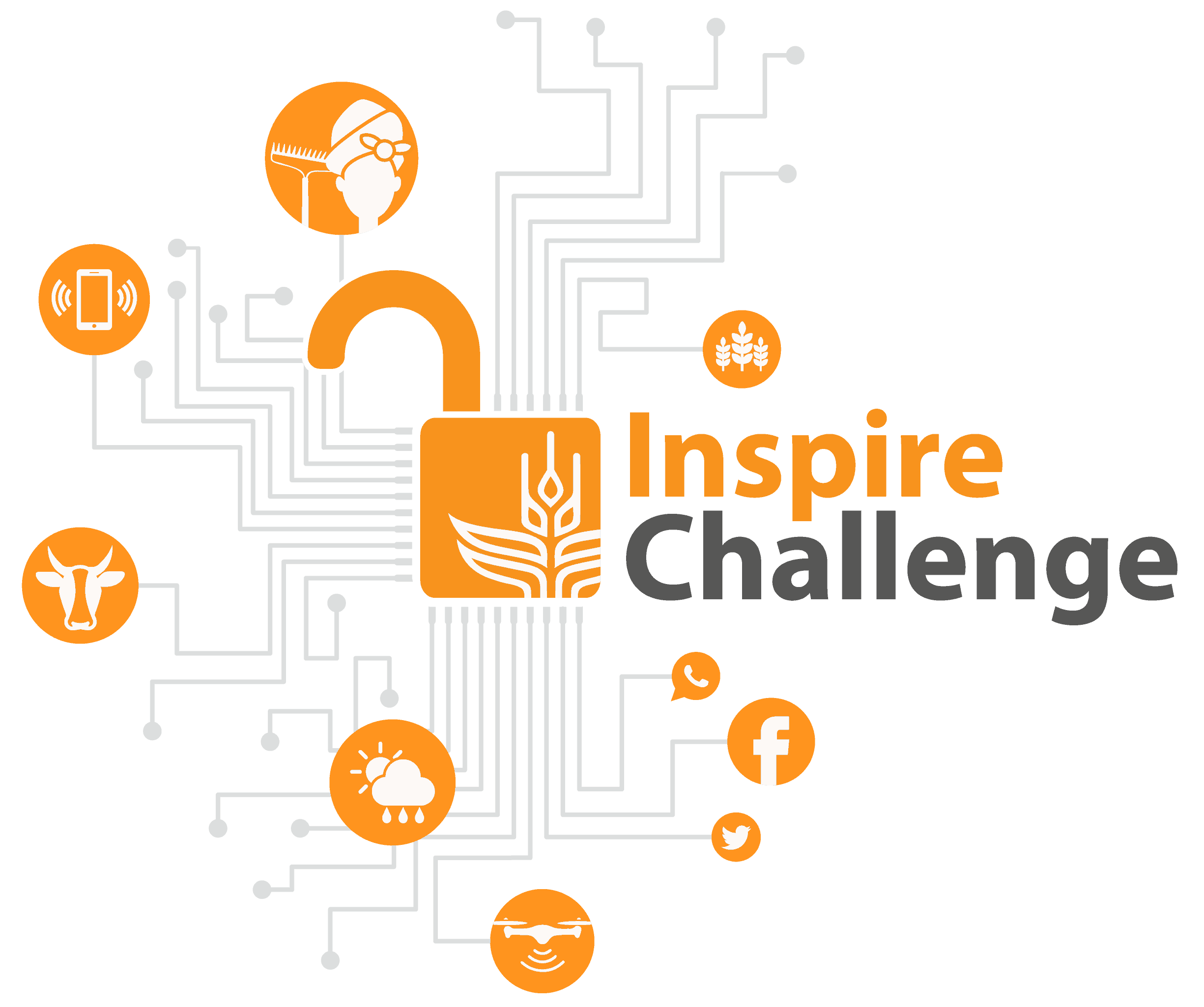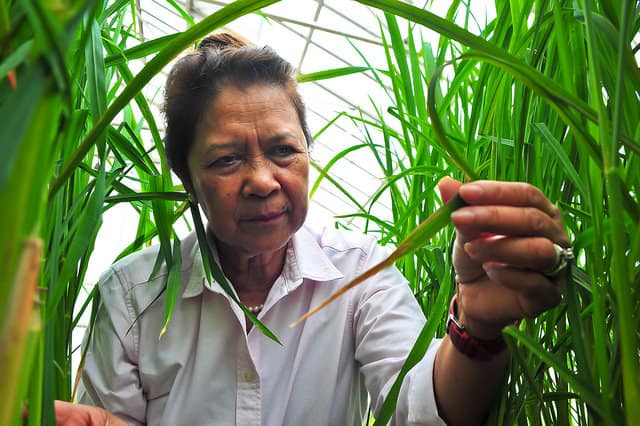
Inspire Challenge 2017 Proposal
DRuID: An informed-Decision platform to Reduce the risk of RIce Diseases
Rice diseases, such as bacterial leaf blight, represent a serious limitation for rice production in most areas of Asia.
The disease prevails in the paddy field because farmers use susceptible varieties where weather conditions favor disease development. In that scenario, the risk of having an outbreak the next season is higher.
Work conducted by IRRI suggests that due to efforts to release resistant varieties of rice lead to significant yield and financial savings.
For instance, consider that if a bacterial blight epidemic occurs 10% of the time over a given production area, the saving in yield is estimated to be 0.8 million metric tons of paddy rice per cropping season in India, Indonesia, the Philippines, and China.
In US dollars that is a savings of USD 20.5 million per cropping season over what would be lost without resistance.
However, because of the pathogen’s ability to overcome resistance genes, it is important to strategically use the genes in such a way that the host plant resistance is maintained.
An idea to solve this
In ancient times, druids were knowledge-keepers that provided members of the community with advice on health matters. In the same way, we are proposing to implement a web platform to advise decision-makers on which rice varieties should be promoted in the next season to grow a healthy crop.
The tool will allow us to manage rice disease in real-time and to define breeding priorities for specific regions. In order to do this, the platform will integrate early-season pathogen diagnostics, modeling of weather patterns, and disease resistance profiles of local rice varieties.
The platform will provide advice after solving three main questions: What is the predominant pathogen population in the area? Which areas have a higher risk of disease? What is the host resistance spectrum that is needed for that area?
We expect that the tool will allow public and private enterprises to make informed decisions on rice.
To feed the DRUiD platform with field and environment data, we have developed new technologies that will be integrated for the first time. For instance, we created PathoTracer, a molecular test that can identify pathogen races directly from infected leaf sample.
We are also building up a catalog of resistance factors in released varieties to determine the best fit. Using data from PathoTracer, we will monitor the pathogen races in-real time and link that data with weather forecasts, environmental data, disease model outputs and other and localized information using GIS technologies.
Actionable information for farmers and extension professionals will be delivered via a web-based dashboard, using R shiny as the platform, to develop a system similar to the Philippine Rice Information System (PRISM) developed by IRRI with e-mail or SMS text message alerts as with the Rice Crop Manager (RCM) decision support tool developed by IRRI as well.
The predicted impact
We expect to empower rice farmers by providing seasonal advice. If farmers know which variety is less likely to suffer in the following season, it will reduce the risk and increases their income.
Upscaling this principle can result in effective management of large rice areas or targeting breeding by national programs working in rice.
With a tool such as DRuID, the use of resistance genes can be tailored to the specific situation by promoting the most appropriate varieties for the next season.
In effect, this will help lengthen the period of time that the resistance is durable through targeted use of resistance genes rather than indiscriminant uses over broad areas that can lead to the resistance being overcome.

Support this Proposal
The Platform for Big Data in Agriculture is all about the creating connections to build the capacity’s need to inspire real change in the agriculture sector.
The aim of the Inspire Challenge is to generate innovative ideas that will revolutionize the future of agriculture using big data tools. You can be a part of the revolution by supporting these initiatives and help secure food for the future.
Contact one of the team members below to ask how you can help realize this idea.





